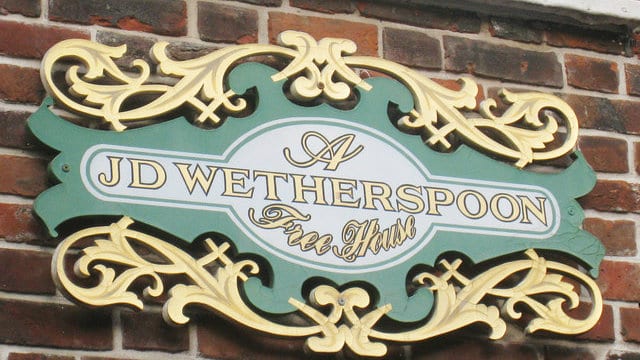The recently knighted Sir Tim Martin has sold £10m of J D Wetherspoon (LSE: JDW) shares in a possible signal that his days of leading the no-frills pub chain are coming to an end. The share price leapt 4% on the news and, after a little volatility, still remain higher some weeks later.
The £10m sell-off is, in fairness, still a drop in the ocean. Wetherspoons is a FTSE 250 listed company with a £935m market cap and the financial cost of the sale is less than the yearly sales of an average Spoons pub. Martin’s stake as a percentage has crept down from 25.68% to 24.58%.
Key risks
The wider issue is one of Martin’s future at the company. He still retains an active role as chairman and is renowned for still visiting his pubs and chatting with the staff and customers. But given his age (he’s 69 now) and the recent move to cash in on a few shares, you have to wonder how much longer he fancies the challenge and what impact that might have on the company.
Wetherspoons’ “founder-led” status is one of the reasons I am a shareholder. With someone at the top with “skin in the game”, I expect better long-term strategy and a lower chance of short-term profit squeezing. The data backs this up too. A study by Purdue University discovered founder-led companies on the S&P 500 outperformed the rest of the index by 3.1 times over 15 years.
It’s true that Martin hasn’t worked many wonders recently. Wetherspoons has struggled with pandemic lockdowns and the bite of cost-of-living pressures. Margins have been squeezed, leases have been surrendered, and the shares are down 55% from a pre-pandemic high. The issue of supply chain costs is not one that’s gone away and will pose a key risk to the firm however long Martin sticks around.
Improved immeasurably
In spite of the gloomy macroeconomic situation, the latest news from the firm is positive. Like-for-like sales were up 5.8% in the 10 weeks to 7 July. Sales per pub were over a fifth higher than pre-pandemic levels.
In Martin’s words, “It hasn’t been a fast recovery, but sales are back at record levels. Costs are quite high, but the overall situation has improved immeasurably from a few years ago”. Importantly, as far as I’m concerned, the increase in sales was some distance better than the benchmark for the sector.
While the news of Martin’s sale did cause a brief moment of alarm for me, I won’t be making any changes. It’s a small sell-off, really, and the investment case remains unchanged. The company owns very popular pubs that sell very cheap beer. I’m happy to hold.








